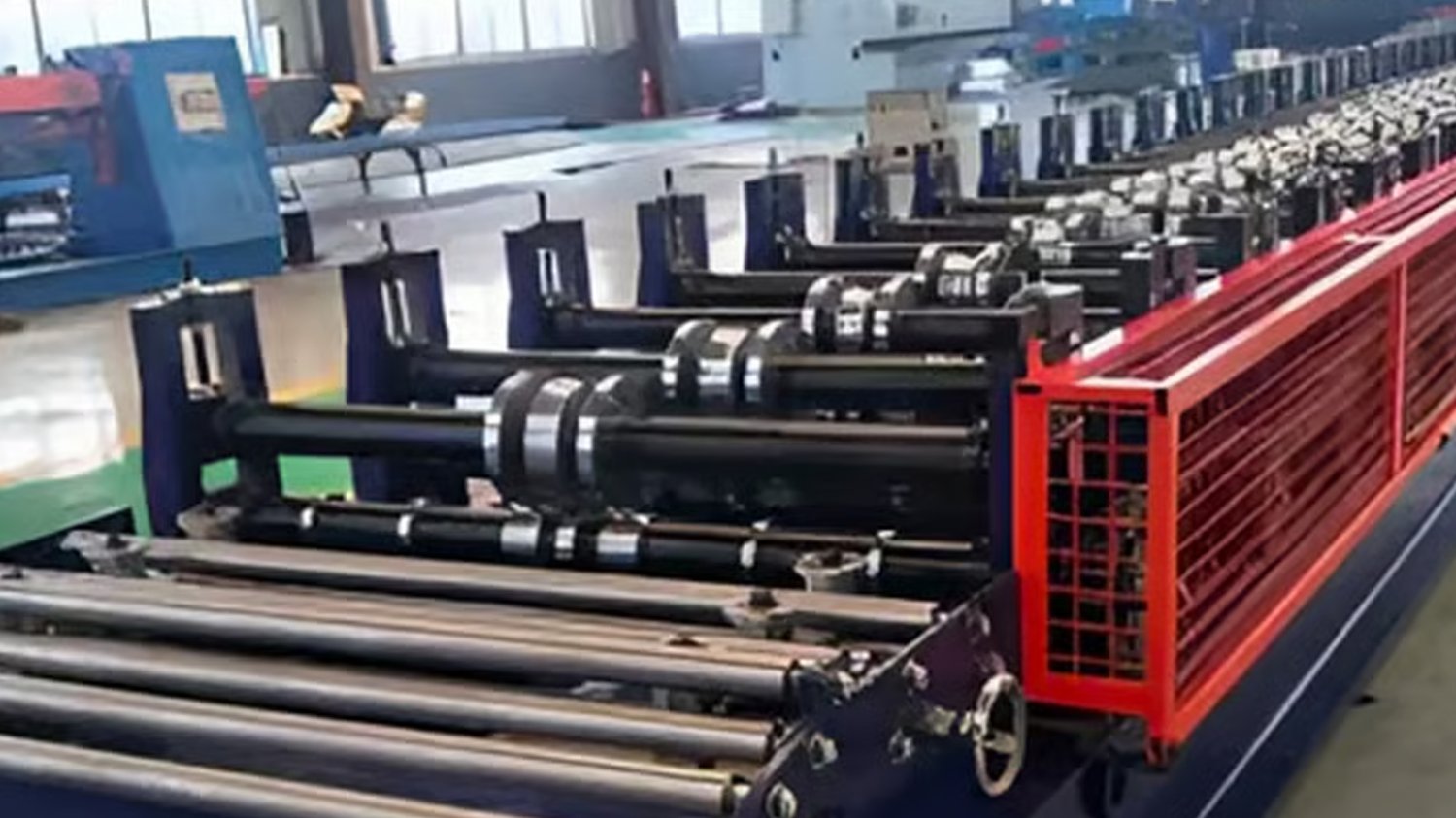The floor deck roll forming machine is an essential piece of equipment in the construction industry, designed to fabricate steel floor decking panels efficiently. These machines automate the process of producing corrugated steel decks that serve as the base for concrete floors. Their precision and speed make them indispensable in projects requiring strong, durable, and lightweight flooring solutions.
How Floor Deck Roll Forming Machines Work
Floor deck roll forming machines operate by continuously feeding metal coils through a series of rollers that progressively shape the steel into the desired floor deck profile. This cold forming process maintains the metal’s strength while producing accurate and consistent panel shapes that meet specific building requirements. The automated setup reduces material waste and ensures high production volumes.
Key Components of Floor Deck Roll Forming Machines
A typical floor deck roll forming machine comprises several key parts including decoiler, leveling system, roll forming stands, punching stations, cutting units, and control panels. The decoiler unrolls steel coils smoothly, while the leveling system straightens the metal before it reaches forming rollers. Punching stations create openings or fixing points, and cutting units trim the decks to precise lengths.
Advantages of Using a Floor Deck Roll Forming Machine
Floor deck roll forming machines provide numerous benefits including enhanced production speed, consistent product quality, and reduced labor costs. By automating the steel forming process, these machines minimize human error and allow for continuous operation. Additionally, the lightweight steel panels produced aid in faster construction and reduce overall structural load.
Applications of Floor Deck Roll Forming Machine in Construction
This machine is primarily used to manufacture steel decks for commercial, industrial, and residential buildings. The floor decking panels serve as permanent formwork for concrete slabs, contributing to structural support and integrity. Beyond floors, these panels can also be adapted for roof decking, mezzanines, and bridge decking, showcasing the versatility of the floor deck roll forming machine.
Material Compatibility and Flexibility
Floor deck roll forming machines are compatible with various steel grades, including galvanized, stainless, and pre-painted steel coils. This flexibility allows manufacturers to produce customized floor decking tailored to specific environmental conditions, such as corrosion resistance in coastal areas or increased fire resistance in industrial applications.
Customization Features in Modern Machines
Recent advances in technology have enabled floor deck roll forming machines to offer a high degree of customization. Operators can adjust the thickness, width, and profile shape of floor decks to match project specifications. Programmable logic controllers (PLCs) and computer numerical control (CNC) systems improve automation, reduce setup times, and enhance repeatability.
Energy Efficiency and Environmental Impact
Modern floor deck roll forming machines are designed with energy-saving motors and optimized forming processes to reduce power consumption. By producing precisely cut panels, these machines also help minimize scrap material, contributing to sustainability in steel manufacturing. Using recyclable steel further enhances the environmental benefits of floor deck production.
Maintenance and Longevity Considerations
To ensure optimal performance and a long service life, consistent maintenance of floor deck roll forming machines is critical. Regular lubrication of rollers, timely replacement of worn components, and electrical system inspections can prevent breakdowns. Proper maintenance not only prolongs machine durability but also maintains product quality and manufacturing efficiency.
Future Trends in Floor Deck Roll Forming Technology
The future of floor deck roll forming machines points toward greater integration of smart manufacturing and Industry 4.0 principles. IoT-enabled sensors can monitor machine health in real-time, while AI algorithms optimize production parameters for increased efficiency. Additionally, improvements in material science and machine designs will support the fabrication of even lighter, stronger, and more complex floor decking profiles.
Quote Inquiry
contact us

